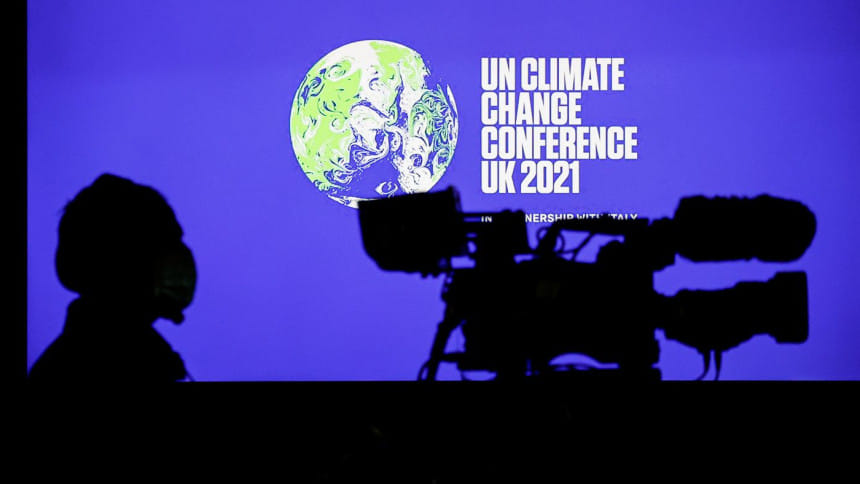COP26 concludes today, here's what happened so far

The 26th UN Climate Change Conference, or COP26, concludes today. Over 25,000 people – including world leaders, government negotiators, business officials, activists – attended the two-week long event in Glasgow, Scotland.
The first COP to ever take place was in 1995 and since then nations have been congregating annually to devise strategies on how to tackle the growing crisis of climate change. However, the efficacy of the action plans and the adherence to target goals has often been subjected to skepticism and ridicule.
The draft agreement of the conference highlights commitments to larger emissions cuts by 2022 and urging developed nations to follow through on their promise to financially help poorer, vulnerable nations in fighting climate change. To elaborate, in 2009, wealthy countries pledged 720 billion pounds per year to these nations by 2020 to fund clean energy, protect populations from the impacts of an overheating earth, and compensate for the damage already caused. And lastly, it called on countries to accelerate the phase-out of coal and subsidies for fossil fuels.
If this gets included in the final agreement, it would be the first time the COP has recognized the role of fossil fuels in driving climate change.
COP21 resulted in the Paris Agreement which was signed by almost every country in the world pledging to reduce emissions so as to curb global warming to 1.5 ℃. Unfortunately, it did not work out as planned and world leaders have yet again assembled to check in on each other's (sorry) progress of the Paris climate deal.
More than 100 world leaders and politicians from about 200 countries attended the summit. But what's surprising is the absence of important leaders from China and Russia. With China being the largest greenhouse gas emitter (followed by the US and India) and Russia the fourth most polluting, negotiations may be hard to reach.
One of the outcomes of the climate summit is the joint statement issued by the United States and China where both countries vowed to do more to cut carbon outputs and in which China, for the first time, committed to address its methane emissions. Moreover, dealmakers have finalized a complete shift to the use of EVs by 2040 globally (although some stress 2030 is a better deadline) and in leading markets by 2035.
This means an end to the sales of emission-producing vehicles run on fossil fuels. However, major carmakers like Hyundai-Kia, Renault-Nissan, Toyota, Volkswagen have failed to sign the zero-emissions pledge unlike General Motors, Ford, Jaguar Land Rover, Mercedes-Benz. China and the US, world's biggest car markets, were absent from the signatories which went over 100.
Other agreements included vows to reverse deforestation by 2030 signed by more than 100 world leaders with Brazil guilty of clearing huge stretches of the Amazon being among the signatories. The global deforestation rate is about 30 football pitches a minute. Reforestation is crucial to maintain the carbon sinks, a term used to describe natural resources capable of absorbing carbon dioxide from the atmosphere and storing it.
As for the next climate talk, COP27 is set to take place in Egypt at around the same time. Till then, actual progress from participating countries will largely determine the success for this year's negotiations.
References
1. BBC (November 9, 2021). COP 26: Everything you need to know about the climate conference
2. The Guardian (November 7, 2021). So what has COP26 achieved so far?
Hiya loves food that you hate by norm – broccoli, pineapple pizza and Bounty bars. Find her at [email protected]

 For all latest news, follow The Daily Star's Google News channel.
For all latest news, follow The Daily Star's Google News channel. 



Comments